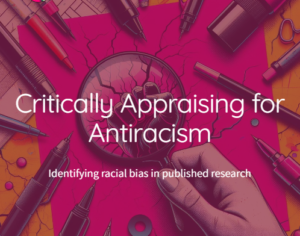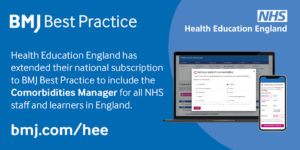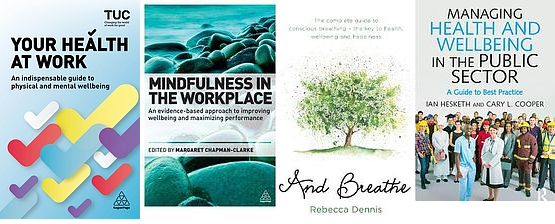A Critically Appraised Topic (CAT) is a form of summarised evidence that tries to present an answer to a specified clinical question. A CAT is different to a systematic review or meta-analysis as the intention is not to systematically seek out all the evidence on a topic, but to look for the best available evidence and quickly come up with an answer. A CAT might be appropriate where there was no national guidance, but is not robust on its own to override existing national guidance.
A CAT starts with a well-defined clinical question that is relevant, well-structured and answerable. This then needs to be translated into a search question using a framework such as PICO (Patient or problem, Intervention or exposure, Comparison or control, Outcome(s)).
For a therapy questions, PICO would consist of the patient's disease or condition, a therapeutic intervention (for example a drug, surgical intervention, or medical advice). The comparison might be standard care, another intervention, or a placebo, and the outcome might be, for example, reduced mortality rate, complications, or disease recurrence.
The P (Patient or problem) may also include information about the population group (for example, older people, or women).
For example, the question ‘In a patient with acute bronchitis, do antibiotics reduce sputum production?’ could be put into a PICO framework as:
- P patients with acute bronchitis
- I antibiotics
- C none (it’s not always necessary to have a comparison)
- O reduction in sputum production
The PICO framework aids searching in databases, by allowing you to search for each concept separately using thesaurus and free-text terms to cover synonyms and variant spellings, and then combine the searches together to find research that covers all the concepts.
Since most CATs are related to therapy questions, the most appropriate study design would be an existing systematic review, or randomised controlled trials (RCTs) and these could be found in databases such as the Cochrane Library, Medline, EMBASE and CINAHL. Search filters are available to help limit the search to systematic reviews or RCTs.
Library staff are happy to either provide training and assistance on how to search these databases, or can carry out evidence searches on your behalf.
Once suitable articles have been found, they need to be appraised for their validity, and the CASP checklists are a good way to do this. There are different checklists available different types of evidence, and each one asks the most pertinent questions for that type of research.
The final stage is to summarise the evidence to come up with an answer to the clinical question initially posed, or a clinical ‘bottom line’.
Library staff are happy to support the development of CATs through suggesting suitable search terms or translating a clinical question into PICO, selecting databases, and providing critical appraisal resources, and we can point you in the direction of further resources.




